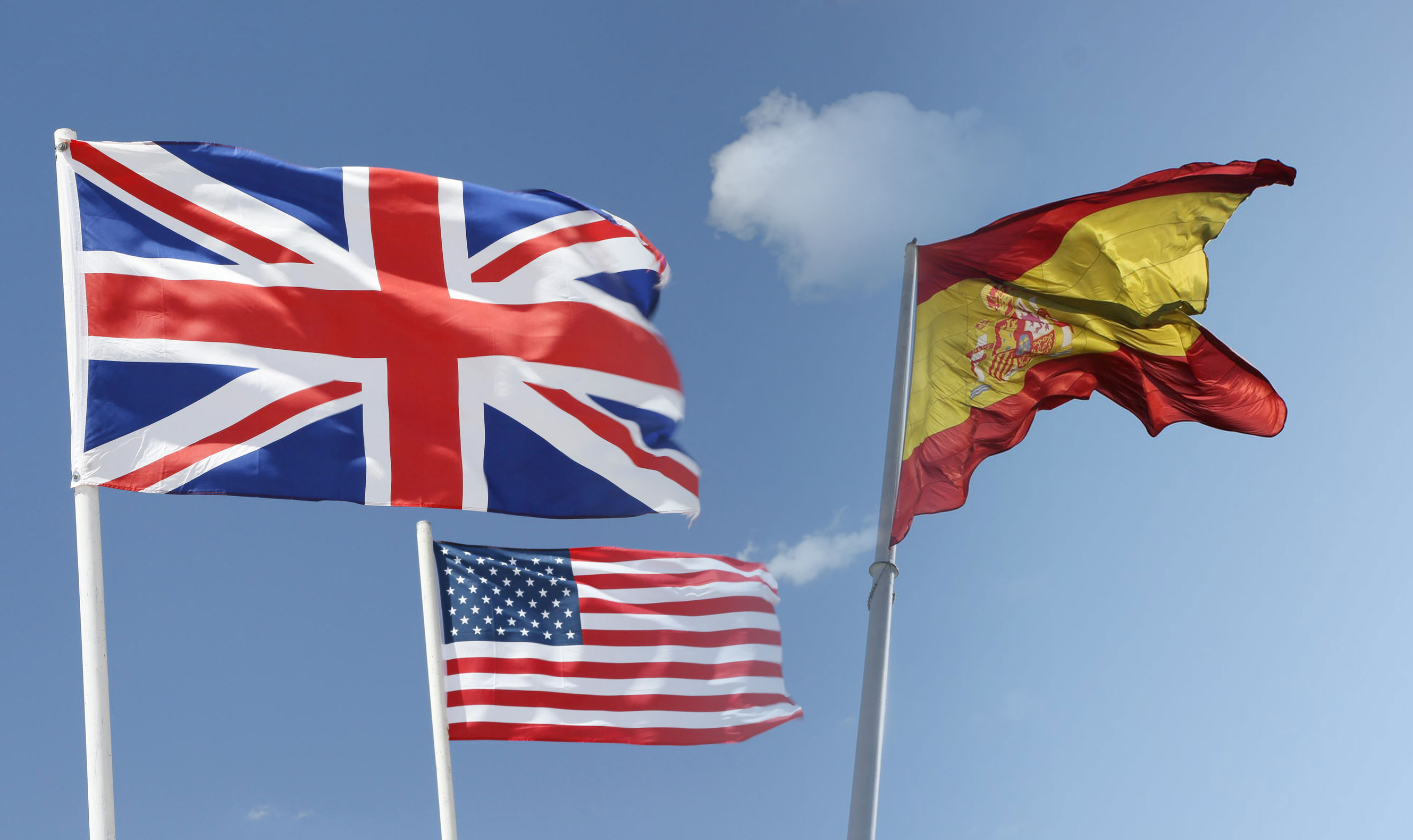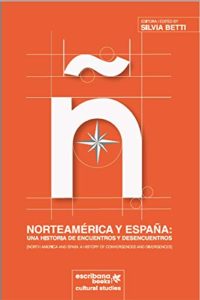Dr Fernando Gómez Herrero, Honorary Fellow in Birkbeck’s Department of Cultures and Languages, explores the historical links between the U.S. and Spain, via England. This article, under the same title as this blog, is featured in its entirety in the book Norteamérica y España: una historia de encuentros y desencuentros.

An American, an Englishman, a Spaniard: birds of the same feather flying together? What binds them together? Why would a noted contemporary public intellectual and politician from the US go to an old-European legacy of the relative periphery of five centuries ago? And how does he go “there”? Are his modern languages skills good enough to do so? What about the Englishman? How does he broker a good deal across the Atlantic? What historical ghost of the Spaniard shows up five centuries after his demise in the Anglo world? The former American Senator for New York, Daniel Patrick Moynihan (1927-2003) invokes the figure of the Spanish Dominican Francisco de Vitoria (1492-1546), in his fight within and against the imperial politics during the Reagan presidency. And he does it indirectly via the satirical novella titled Scott-King’s Modern Europe (1947) by Evelyn Waugh (1903-1966). The connection is direct between this fiction with Moynihan’s social-science work titled On the Law of Nations (1990). What is going on?
This is thus about the reconstruction of the historical links between Britain (or should I say England?) and Spain, inside the early years of the Cold War. And it is also about recognising the necessity of crossing the Atlantic and “Americanising” some of these findings, hence the connection with the influential figure of US Senator Daniel Patrick Moynihan, an Irish-Catholic of Democratic leanings who collaborated with diverse administrations such as Nixon’s and Clinton’s. Moynihan’s argument for international law is Vitorian and utopian and he is exclusively following Waugh whilst quoting from Brierly. How does our good American follow our colourful English man of satirical letters dealing with the figure of Vitoria emerging from the relative marginality of Franco’s Spain, still reaching us today? Two other names of importance: the Englishman J. L. Brierly (1881-1955) and the Spaniard Camilo Barcia Trelles (1888-1977).
 This article deals with the historical links between the US and Spain via England. It deals with the history of international law caught up in between English-speaking and Spanish-speaking traditions of scholarship and interpretation. We are dealing with the deemed inspirational “father” of international law in one official beginning, i.e. the Early Modern / colonial European capture of the Americas, mid-1950s in Europe and the 1980s-1990s in the US. Our man of fictional letters (Waugh) misbehaves. Our American man of social-science studies behaves somewhat. The ghost of Vitoria is invoked by the latter to try to put limits to systematic violation of international law by his own imperial country. What lessons are we to learn in our own times? There is more to Moynihan’s neo-Wilsonian visibility of Vitoria on the American side of things than meets the eye, and there is also less. There are virtues -and vices if you wish – in both men of letters. And the significance of the historical sign “Vitoria” starts to go in many directions. This critical evaluation underlines some generalisations about historical links between the Anglo-Atlantic and Spain, which are not yet left behind.
This article deals with the historical links between the US and Spain via England. It deals with the history of international law caught up in between English-speaking and Spanish-speaking traditions of scholarship and interpretation. We are dealing with the deemed inspirational “father” of international law in one official beginning, i.e. the Early Modern / colonial European capture of the Americas, mid-1950s in Europe and the 1980s-1990s in the US. Our man of fictional letters (Waugh) misbehaves. Our American man of social-science studies behaves somewhat. The ghost of Vitoria is invoked by the latter to try to put limits to systematic violation of international law by his own imperial country. What lessons are we to learn in our own times? There is more to Moynihan’s neo-Wilsonian visibility of Vitoria on the American side of things than meets the eye, and there is also less. There are virtues -and vices if you wish – in both men of letters. And the significance of the historical sign “Vitoria” starts to go in many directions. This critical evaluation underlines some generalisations about historical links between the Anglo-Atlantic and Spain, which are not yet left behind.
In addressing areas and studies, historiographies and ideologies, the aim is here not to celebrate but to historicise, i.e., to interrogate critically world-area demarcations directly implicated. The task is to reconstruct the ideological interests of diverse scholars and intellectuals, see how they related to each other, or failed to do so, and also cover representative groups (mis-)handling the (im-)possible global history-writing done ever since. English-language and Spanish-language materials share the discussion table and project these voices towards the imperfect future convergence of international law.
